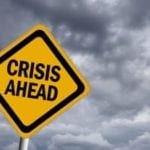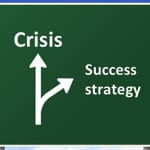The media often points to examples of large brands failing to observe crisis-response best practices. The incident at the Topeka Zoo on Saturday (April 20) showed a small nonprofit conducting crisis PR at very high levels. The Zoo not only communicated quickly and transparently, it did so with sensitivity. Some large brands and organizations should take note.
Crisis Management


You Have a Crisis. Now What?
April 17th, 2019 by Nicole SchumanSome PR pros may find it difficult to know exactly what constitutes a crisis. Calls may increase at your customer service center. A company may appear on Google Trends. Or, as Margaret Standing, director, corporate communications at Designer Brands, put it, “you can watch your Apple watch, and see the increase of beats per minute. That’s when you know there is a crisis.” After that, you must decide how to respond. See how crisis experts advised attendees during PRNEWS’ Crisis Management Workshop.

How PR Pros Help Keep Their Brands Safe From Social Cyberattacks
April 16th, 2019 by Justin JoffePR pros often focus on the “fun” side of social: the stories, images and conversations that bring a brand to life. Unfortunately, darker forces also exist. Brands face a number of adversaries; from account hacks to bot attacks. Sometimes, brands are their own worst enemy, violating federal regulations that a communicator may not have even been aware of.

Handling Awkward Media Questions: Tips for When Gas is Poured on a Baseball Field
April 10th, 2019 by Seth ArensteinPR pros are always ready with a statement for the press. Well…maybe not always. What happens when a situation occurs that blindsides you, like when someone uses gasoline to dry a wet ball field? We asked a group of communicators. Their top response: Never say ‘No Comment.’ Use the opportunity to offer your version of the story or promise to get back to the reporter when you have substantive information.

Communicators Say Resources, Response Time, Measurement Remain PR Crisis Pain Points
April 1st, 2019 by Seth ArensteinKnowing how and when to respond to a crisis and having the resources to manage a crisis and not allow the daily business of communications to fall through the cracks were some of the pain points communicators mentioned during a recent roundtable.

Takeaways from the Measurement Roundtable, Crisis Tips and a Different Look at SEO
April 1st, 2019 by Seth ArensteinIn each edition of PRNEWS we highlight takeaways from select articles as well as important notes for subscribers and additions to the PR News Subscriber Resources Center. This month we have takeaways from several articles and a reminder to PRNEWS subscribers to take advantage of the 33 percent discount on all PRNEWS events and webinars.

What Boeing’s PR Crisis Says About True Oversight and Regulation
March 28th, 2019 by Justin JoffeSure, air disasters take a long time to investigate, and much of what’s being said now on behalf of Boeing is speculation to mitigate the crisis until they have real answers. Some big companies are wary of admitting their faults, making the need for true oversight all the more pressing. But when it happens, oh how positive the results can be.

Three Tips to Bolster Your Crisis Communications Effort
March 28th, 2019 by Devin Sirmenis, Witt O'Brien'sLarge companies often fail at crisis management because they view the situation only from their perspective. A more successful crisis-management effort considers the views of external stakeholders. In addition, several exercises can help communications teams boost speed and confidence during a crisis.

Crisis Tips from Robert Kraft’s Non-Apology Apology
March 25th, 2019 by Seth ArensteinSometimes the most difficult parts of PR crisis management are the basics, when and if to react to something and what to say. The billionaire owner of the Super Bowl champion New England Patriots provides fresh evidence as he and his entourage mangle the sex scandal he’s battling. Was issuing an inauthentic apology the way to go?

PR Tips from Facebook’s Response to its Password Snafu
March 22nd, 2019 by Seth ArensteinConventional wisdom urges brands to own their mistakes and be as transparent as possible with your explanation of them. Another maxim is that when you don’t tell your story, someone else will gladly do it for you, though that version may differ greatly from your narrative. Facebook said it exposed millions of users’ passwords to thousands of its staff. It discovered the issue in January. Why did it wait until the end of March to mention it?


